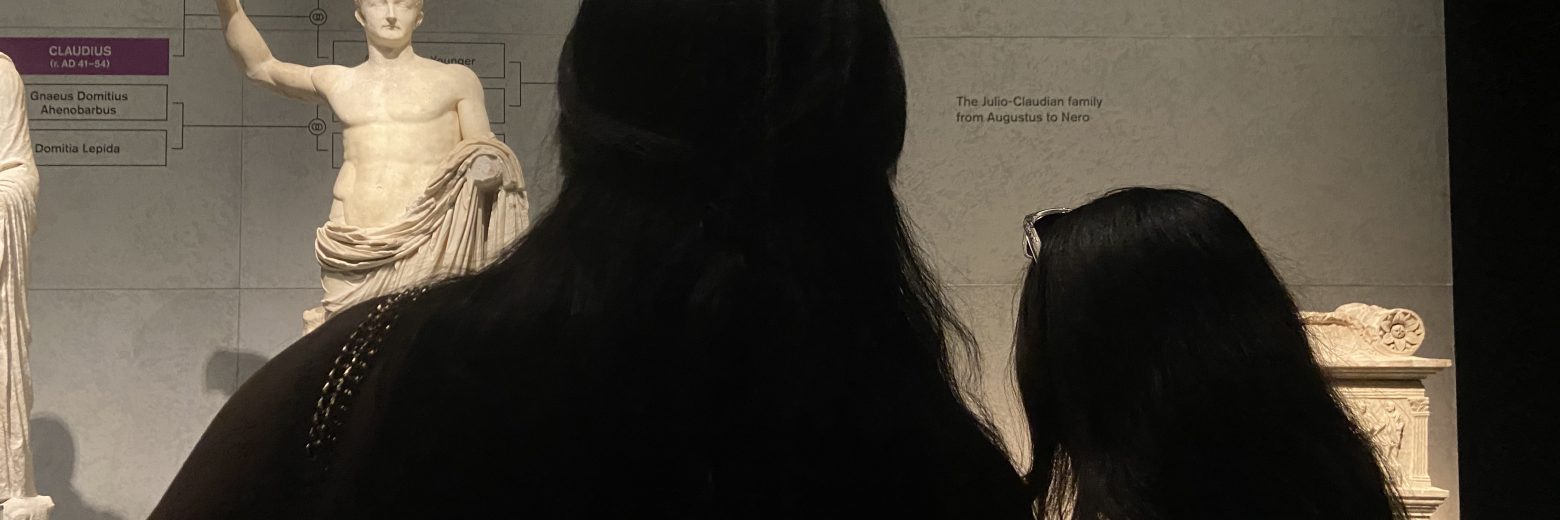CLASSICAL CIVILISATION
If you are inspired by the ancient cultures of Greece and Rome, you will love A level Classical Civilisation.
WHAT IS CLASSICAL CIVILISATION?
In this course you will be introduced to the social, political and literary contexts of the classical period, studying texts and material from a variety of literary sources including Homeric epic, the genesis of theatre and democracy in 5th century Athens represented in great Greek tragic plays, and ending with the political and cultural Principate of Rome under Augustus, mediated through Virgil, Ovid and Seneca.
Newly accredited literary and visual sources support a new specification introducing innovative components such as the “Invention of the barbarian” and “Love and Relationships”. Now you can consider supporting material culture in the form of Attic pottery and sculpture, the Frieze of the temple of Apollo at Bassae or the ancient site of Persepolis, in your understanding of ancient civilisation.
WHAT IS CLASSICAL CIVILISATION AT DLD?
Following the OCR syllabus, Classical Civilisation at DLD begins with the study of epic; either Homer’s “Odyssey” or “Iliad” and Virgil’s “Aeneid”. Supported by two additional units:
- Greek Theatre: Aristophanes’ comedy “Frogs”, Sophocles “King Oedipus”, Euripides “Bacchae”
- Beliefs and Ideas: Seneca, Plato, Ovid and Sappho
Literary analysis of these works is reinforced by the study of the history & politics of the period and includes secondary literary sources such as Livy’s “History”, Plutarch’s “Lives”, Thucydides “History of the Peloponnesian War”. The Theatre Unit has in addition elements of ancient material culture, pots, archaeological sites, funeral inscriptions and grave stele.
All texts (including material texts) are looked at in detail in the classroom and considered in their contemporary context. Seneca and Plato are discussed for philosophical merit and within the history of ideas, and the drama of Imperial Rome or 5 Century Athens. Sappho and Ovid are explored for poetic merit and as an insight into the emotional life of the ancient world.
Classics students are constantly involved in lively debate and analysis, and scholarly research.
HOW IS CLASSICAL CIVILISATION AT DLD ASSESSED?
| OCR | ||||
| Component | Marks | Duration | Weighting | insert text |
| The world of the hero (11) | 100 | 2 hours 20 mins | 40% | |
| Component group 2: Culture and the arts (21, 22, 23 and 24) | 75 | 1 hour 45 mins | 30% | |
| Component group 3: Beliefs and ideas (31, 32, 33 and 34) | 75 | 1 hour 45 mins | 30% | |
Component 11: The world of the hero
In this compulsory component, students study either Homer’s Iliad or Odyssey and Virgil’s Aeneid.
Component group 2: Culture and the arts
The components in this group involve study of visual and material culture, and (except for Greek art) literature in translation.
Students study one of:
- Greek theatre (21) Set texts ” King Oedipus”; “The Bacchae”, Aristophanes’ “Frogs”
Component group 3: Beliefs and ideas
Components in this group involve study of an area of classical thought, along with either literature in translation or visual/material culture.
Students study one of:
- Love and relationships (32) – Seneca, Plato, Sappho & Ovid
WHAT DO I NEED BEFORE CLASSICAL CIVILISATION AT DLD?
Genuine interest and enthusiasm about the classical world and the way it has affected western civilisation, together with an inquisitive mind, are the main ingredients for success in the subject. Students are not required to have studied GCSE Classical Civilisation or to have any prior knowledge.
GOOD SUBJECT COMBINATIONS
A Level Classical Civilisation is an excellent choice regardless of the other chosen subjects. It provides students with an education which far exceeds the limits of A level exam preparation and helps them develop a sophisticated way of thinking as undergraduates and as professionals. The subject is highly appreciated by university admission officers and would make a UCAS application stand out.
Certain subjects are particularly good combinations. English Literature is the most obvious. Students studying both subjects benefit from similarities in the way they are taught and the way texts are analysed and evaluated. With two units devoted to classical theatre, Drama is also a popular combination. The study of Classical Civilisation involves the development of an insight into the history and society of the classica period. This makes the subject an excellent companion to History, Politics, Sociology and Psychology. Classical Civilisation can also add variety and an interesting element of the humanities to a course otherwise based on Maths and Sciences.
WHAT DO I DO AFTER DLD?
An A Level in Classical Civilisation will enhance your chances of being accepted into university, whatever course you apply for. You may wish to continue your journey into the classical world and specialise in Classics, or use your classical background as the foundation for subjects like English Literature, History, Law, Archaeology, Anthropology, Politics, Theology and Philosophy.
A good number of Classics graduates move on to become solicitors through a law conversion course. Studying Classics at university leads to high degrees of employability in various sectors, such as teaching, civil services, financial institutions and journalism. This is because the skills and knowledge acquired through the study of Classics are highly transferable to other areas: students emerge with the ability to deal with precise details, the habit of being consistently prepared to perform and the sense of perspective that comes from the study of such a long and broad sweep of history and culture.
QUESTIONS ON CLASSICAL CIVILISATION COURSES
Q. Can I do the course in one year?
A. Yes, but each application will be evaluated separately.
ENTRY REQUIREMENTS ON CLASSICAL CIVILISATION FOR INTERNATIONAL STUDENTS
To study A Levels, your current or pending exam results should be equivalent to or higher than GCSE (General Certificate of Secondary Education) in at least 5 subjects and a minimum level of English equivalent to IELTS 5.5.
At the start of each academic year of study students following an A Level course without a pass at Level 5/Grade C in GCSE or IGCSE English Language or with an Academic English score below 6.5 overall must join an Academic English training course for the duration of the academic year which will be timetabled alongside A Level lessons.
If your level of English is not sufficient to meet the entry criteria for the A Level programme you will normally be offered a place on the one year Academic Preparation Course (pre A Level) in order to bring your English skills up to the required level.



